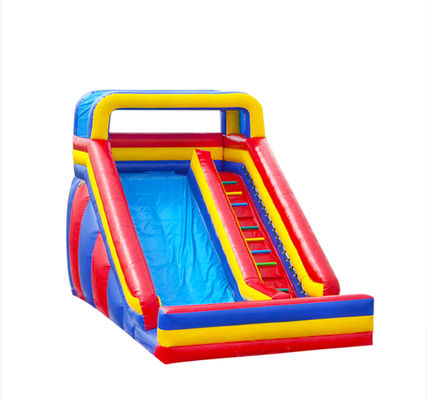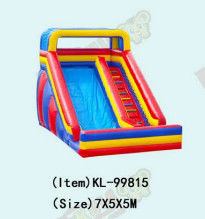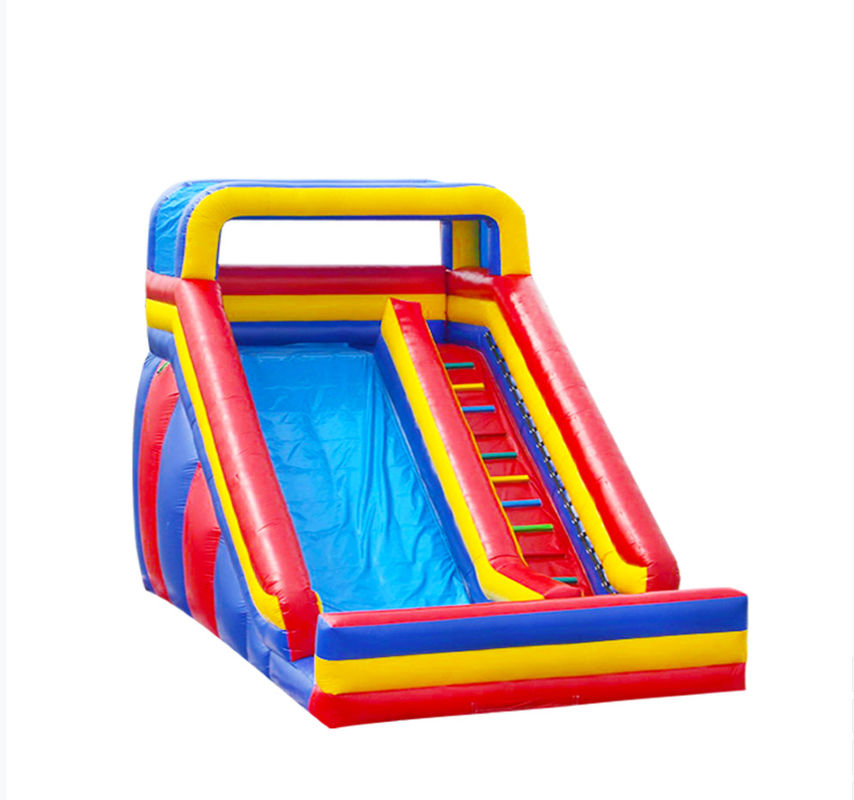Red Yellow Blue Industrial Inflatable Water Slides For Outdoor
Product Details:
| Place of Origin: | Guangzhou, China |
| Brand Name: | Kule |
| Certification: | CE, EN14960, SGS |
| Model Number: | KL-99815 |
Payment & Shipping Terms:
| Minimum Order Quantity: | 1 Piece |
|---|---|
| Price: | negotiable |
| Delivery Time: | 7-10 days |
| Payment Terms: | T/T |
| Supply Ability: | 1 piece per 7 days |
|
Detail Information |
|||
| Size: | 7*5*5m Or Customizable | Accessories: | Air Blower, Repair Kit, Storage Bag |
|---|---|---|---|
| Shape: | Bouncer Slides | Weight: | Varies Depending On Shape |
| Color: | Customized Color, Red, Blue, Yellow | Logo: | Client's Logo |
| Highlight: | Blue Inflatable Water Slides,Yellow Inflatable Water Slides,Outdoor Inflatable Water Slides |
||
Product Description
| Attribute | Value |
|---|---|
| Size | 7*5*5m or Customizable |
| Accessories | Air Blower, Repair Kit, Storage Bag |
| Shape | Bouncer Slides |
| Weight | Varies depending on shape |
| Color | Customized Color, red, blue, yellow |
| Logo | Client's Logo |
This vibrant inflatable slide features bright colors including red, blue, green, yellow, and pink. Designed with two lanes and decorated with colorful patterns and cartoon images, it creates a lively atmosphere for children's entertainment. The structure includes safety mesh netting at the top and an orange platform at the base with additional colorful elements.
Ideal for children's parties, outdoor events, and amusement parks, this inflatable slide provides an exciting and enjoyable play experience.
| Material | PVC Tarpaulin |
|---|---|
| Size | 7*5*5m or Customize |
| Color | As the picture shown or customized |
| Printing | Drawing printing |
| Package | Strong PVC bag for inflatables, carton for blower |
| Accessories | Blower, repair kit (spare material and glue) |
| Blower | CE:220-240V UL: 110-115V |
| OEM | available |
| Workmanship | Double Stitching |
| Certificates | CE, SGS, EN14960 |
| Set uptime | About 10 mins, depend on the Amusement park size |
| MOQ | 1 PC |
| Payment | T/T, 30% deposit and 70% balance when shipment |
| Shipment | By sea, by air or by express |
| Warranty | 24 months |
| Application | Outdoor and indoor amusement for kids and adults |
Ground Requirements: The ground should be flat and free of sharp items. Any pebble, twig, or glass shard can puncture the inflatable slide's surface. It's advisable to set it up on well-kept grassy areas or clean, leveled concrete surfaces in parks, playgrounds, or event venues.
A safety buffer of at least 2-3 meters is necessary around the slide to prevent users from colliding with external objects.
Avoid windy locations for installation as strong winds can make the slide unstable.
User Restrictions: The age and weight of users must be within the limits set by the inflatable slide. Different designs have different load-bearing capacities and suitable age ranges.
Clothing and Footwear: Users should wear proper clothing without sharp elements. Sneakers or flat shoes that provide good traction are recommended.
Prohibited Behaviors: Pushing, shoving, and roughhousing are not allowed. Users must queue up and wait their turn when climbing the stairs and sliding.
Continuous Supervision: A dedicated supervisor should be assigned to oversee the use of the inflatable slide and monitor user behavior and slide condition.
Emergency Preparedness: The supervisor must have basic first aid knowledge and skills. A first aid kit should be placed in a conspicuous location near the slide.
A:
- Identify the Damage: Thoroughly inspect the inflatable to locate any tears, punctures, or leaks.
- Clean and Dry the Area: Clean the damaged area with mild soap and water. Allow the area to dry completely.
- Patch the Damage: Apply a patch specifically designed for inflatable repairs over the damaged area.
- Apply Adhesive: If using a patch that requires adhesive, apply a thin, even layer to both the patch and the inflatable surface.
- Allow Time to Cure: Avoid using the inflatable until the adhesive is completely dry (at least 1 hour).
- Test the Repair: Inflate the inflatable and check for any signs of leakage.
Note: Use repair materials specifically designed for inflatables and follow the manufacturer's instructions carefully.
A: Free accessories include Storage Bag, Repair Kit, Warning Label, and Custom Logo.





